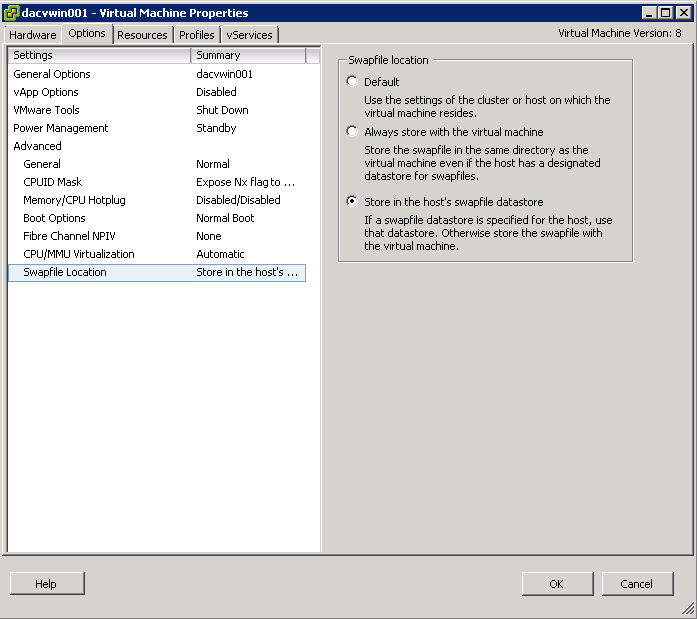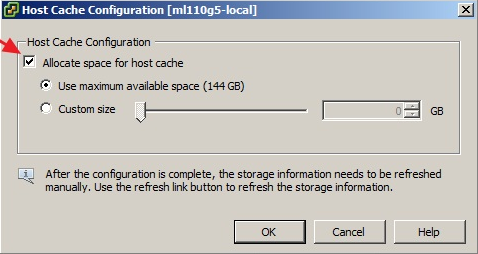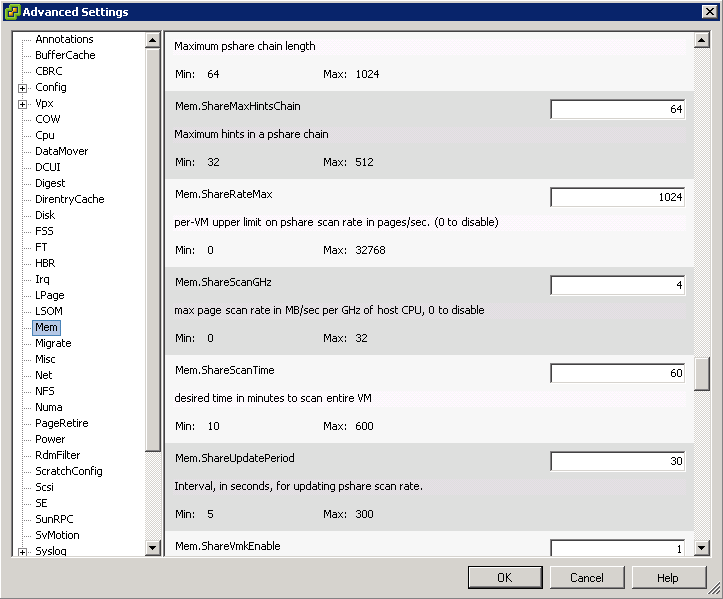Tuning Options
- In addition to the usual 4KB memory pages, ESX also makes 2MB memory pages available (commonly referred to as “large pages”). By default ESX assigns these 2MB machine memory pages to guest operating systems that request them, giving the guest operating system the full advantage of using large pages. The use of large pages results in reduced memory management overhead and can therefore increase hypervisor performance.
- Hardware-assisted MMU is supported for both AMD and Intel processors beginning with ESX 4.0 (AMD processor support started with ESX 3.5 Update 1). On processors that support it, ESX 4.0 by default uses hardware-assisted MMU virtualization for virtual machines running certain guest operating systems and uses shadow page tables for others
- Carefully select the amount of memory you allocate to your virtual machines. You should allocate enough memory to hold the working set of applications you will run in the virtual machine, thus minimizing swapping, but avoid over-allocating memory.
- Understand Limits, Reservations, Shares and Working Set Size
- If swapping cannot be avoided, placing the virtual machine’s swap file on a high speed/high bandwidth storage system will result in the smallest performance impact. The swap file location can be set with the sched.swap.dir option in the vSphere Client (select Edit virtual machine settings, choose the Options tab, select Advanced, and click Configuration Parameters)
- A new feature that VMware introduced with vSphere 5 is the ability to swap to host cache using a solid state disk. In the event that overcommitment leads to swapping, the swapping can occur on an SSD, a much quicker alternative than traditional disks. Hightlight a host > Configuration > Software > Host Cache Configuration
- Use the Mem.ShareScanTime and Mem.ShareScanGHz advanced settings to control the rate at which the system scans memory to identify opportunities for sharing memory. You can also disable sharing for individual virtual machines by setting the sched.mem.pshare.enable option to FALSE (this option defaults to TRUE)
- Don’t disable these other memory over-commitment techniques – Ballooning, Page Sharing and Memory Compression







Leave a Reply